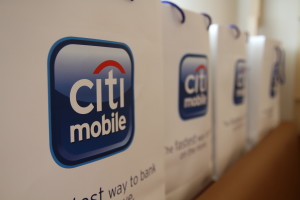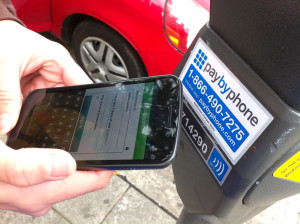October 14th, 2013 by Elma Jane
First what is a Merchant Account? It is a type of bank account that allows businesses to accept payments by payment cards, typically debit or credit cards. A merchant account is established under an agreement between an acceptor and a merchant acquiring bank for the settlement of payment card transactions. In some cases a payment processor, independent sales organization (ISO), or member service provider (MSP) is also a party to the merchant agreement. Whether a merchant enters into a merchant agreement directly with an acquiring bank or through an aggregator such as PayPal, the agreement contractually binds the merchant to obey the operating regulations established by the card associations.
Merchant Account comes in 2 Basic Types – Aggregated Accounts and Dedicated Accounts.
Aggregated Merchant Account – such as those provide by PayPal that use a single merchant account to provide credit card processing for an entire portfolio of companies.
Dedicated Merchant Account – are provisioned specifically for your business.
Each has its Advantages and Disadvantages.
4 Key Points to Consider when deciding which type is the most advantageous for your small business.
1. Creditworthiness: To obtain a dedicated credit card processing merchant account your business will need to go through comprehensive underwriting. If you’re in a difficult to underwrite industry or if your business is very new and if it has a less than stellar credit history then an aggregated merchant account is the best choice. You still need to provide information about your business, underwriting for aggregated accounts is typically far less rigorous than for dedicated merchant accounts.
2. Funds Control: With an aggregated merchant account, transaction proceeds go to the service provider and are then deposited to your bank account at the provider’s discretion. There are no industry standards or rules that govern how an aggregated merchant account provider handles or disburses your money. The provider makes the rules, and can change them at will, so if you choose an aggregated merchant pay very close attention to the contract terms and any changes made to them. With a dedicated merchant account, transaction proceeds, less processing fees, are deposited directly into your business account. While the merchant account provider can correct errors, react to potential fraud and debit your account for customer “chargeback” claims. This must all be done based on industry-standard credit card processing rules.
3. Neighborhood: With an aggregated account, you’ll have no idea about the other companies processing transactions. If a good number of them engage in fraudulent activity, it is possible that the service provider’s processing account will be terminated and even honorable businesses like yours will lose credit card processing ability. If you do go with an aggregated account, it is very important to make sure that your provider is large enough to absorb fraud generated by a few bad apples.
If you’re using a small provider, try to get a list of the other business using the service and check them out to see if you want to live in the same neighborhood. With a dedicated merchant account the only company processing credit card transactions through it will be yours. You are in full control of keeping the account in good standing.
4. Speed: Getting a dedicated merchant account can take time. While there are some providers automating the process and providing same-day decisions. A typical application will take 48 hours to approve and additional time to integrate into a POS or electronic payment processing environment. Signing up for a credit card processing under an aggregated account service provider can usually be done in minutes, and it often comes with an online system that can have you actively processing payment within the hour.
Offering your customers the option to pay with a credit card is a great way to enhance revenue for your small business. Customers want the points associated with rewards cards, and they want to manage their own cash flow by floating balances or financing their purchases. Allowing them to use credit cards accomplishes both. So, give the customers what they want. If you don’t accept credit cards yet, now is a great time to start. Having made that decision, the next step is to obtain a merchant account for credit card processing.
The actual credit card processing rates you’ll be charged are a critically important factor as well. But as with most things, you get what you pay for. So don’t choose a low rate without also considering how the provider you select will impact your overall business.
For Merchant Account Services Please call National Transaction at 888-996-2273 or visit our website www.nationaltransaction.com to know more about our services.
Posted in Credit card Processing, Merchant Services Account Tagged with: account, accounts, acquiring, aggregator, card, cards, chargeback, credit, debit, electronic, environment, fees, financing, fraud, ISO, merchant, msp, payment, PayPal, POS, Processing, provider, transaction, underwriting
October 11th, 2013 by Elma Jane
U.S. Bank and Monitise will develop a mobile shopping experience that includes product selection and instant checkout payment capabilities. Leveraging digital and audio watermarking and scanning technology for product discovery, an initial pilot will integrate mobile action codes, mobile shopping and mobile payments.
Mobile money solutions provider Monitise and U.S. Bank announced an agreement to accelerate the delivery of a product discovery and shopping service that the companies say will make it easier for top-tier retailers to help consumers interact with and buy from leading brands via mobile.
“Technology is creating new ways to bank and buy, and U.S. Bank is committed to playing a leading role in the digital commerce revolution as money becomes more mobile,” developing mobile money services has been a key focus for the company.
“As mobile technology accelerates the convergence between the offline and digital worlds of banking, payments and commerce, banks are identifying new revenue streams and driving value for both retailers and consumers,”
Posted in e-commerce & m-commerce, Electronic Payments, Financial Services, Mobile Payments Tagged with: banking, banks, checkout, convergence, electronic, etailers, mobile, mobile action codes, mobile shopping, money, payment, Scanning
October 10th, 2013 by Elma Jane
Merchant Cash Advance was originally structured as a lump sum payment to a business in exchange for an agreed upon percentage of future credit card and/or debit card sales.
Notion Merchant Cash Advance companies provide funds to businesses in exchange for a percentage of the businesses daily credit card income, directly from the processor that clears and settles the credit card payment. A company’s remittances are drawn from customers’ debit- and credit-card purchases on a daily basis until the obligation has been met. Most providers form partnerships with card-payment processors and take payments directly from a business owner’s card-swipe terminal.These Merchant Cash Advances are not loans – they are a sale of a portion of future credit and/or debit card sales. Therefore merchant cash advance companies claim that they are not bound by state usury laws which limit lenders from charging excessive interest rates. This technicality allows them to operate in a largely unregulated market and charge much higher interest rates than banks. This structure has some advantages over the structure of a conventional loan. Most importantly, payments to the merchant cash advance company fluctuate directly with the merchant’s sales volumes, giving the merchant greater flexibility with which to manage their cash flow, particularly during a slow season. Advances are processed quicker than a typical loan, giving borrowers quicker access to capital. Also, because MCA providers typically give more weight to the underlying performance of a business than the owner’s personal credit scores, Merchant Cash Advances offer an alternative to businesses who may not qualify for a conventional loan.
Usage Merchant cash advances are most often used by retail businesses that do not qualify for regular bank loans, and are generally more expensive than bank loans. Competition and innovation led to downward pressure on rates and terms are now more closely correlated with an applicant’s FICO score.
Generally there are three different types of repayment methods for the business.
1. ACH (Automated Clearing House) Withholding: When structured as a sale, the finance company receives the credit card processing information and deducts its portion directly from the business’s checking account via ACH. When structured as a loan, the finance company debits a fixed amount daily regardless of business sales activity.
2. Lock Box or Trust Bank Account Withholding: All of the business’s credit card sales are deposited into bank account controlled by the finance company and then the agreed upon portion is forwarded onto the business via ACH (Automated Clearing House), EFT ( Electronic Funds Transfer) or wire. This is the least preferred method since it results in a one-day delay in the business receiving the proceeds of their credit card sales.
3. Split Withholding: When the credit card processing company automatically splits the credit card sales between the business and the finance company per the agreed portion (generally 10% to 22%). This is generally the most common and preferred method of collecting funds for both the clients and finance companies since it is seamless.
Opting for a merchant cash advance is a decision made by small business owners every day of the week across this country. If you’re having a hard time establishing a business line of credit or getting approved for a business loan, a merchant cash advance may very well be the best option available to you to help you finance your business.
Here are reasons why a business cash advance makes sense.
A. Can take out more advances as advance is repaid
Most business loans will not be extended as you pay off your balance, but with a merchant cash advance, you can get more money as you pay off your advance.
B. Even with less-than-perfect credit, you can be approved
No worries about being approved if you have less-than-perfect credit, a high credit score is not a major factor in whether you are can receive business funding from a cash advance.
C. Flexible repayment terms – repayment is based on sales volume, not a flat rate
Some businesses can run into financial hardships with traditional business loans that require flat-rate monthly payments, but with merchant cash advances your monthly payments are dependent on your sales volume. This means that if you have a slow month, you pay back less.
D. Frees up time because of the simple application/approval process
The application and waiting process for a business loan or even a business line of credit can be outstanding –sometimes you have to wait 30 days just to receive notice of approval from your application, add the wait time to the back and forth calls, document signing, etc – and it can be an arduous process. However, by choosing a merchant cash advance, you can quickly qualify online or by phone.
E. Gives you more money in your pocket to improve cash flow
Cash advances can give you the opportunity to receive more money than you would be able to borrow from a bank.
F. Gives you money right away
With a merchant cash advance you literally can have your cash in as little as 72 hours from your applications approval – and most businesses get their funding in less than a week. Now that’s a simple process
G. New business friendly
Many small business loans require that you have a well-established business (2 years or more) to even consider you for business funding. With a cash advance, you can receive funding even if your company is newly in business.
H. No personal liability for repayment of the cash advance
Much unlike with business lines of credit and small business loans, you are not personally responsible for repayment of the advancement.
I. Non-restrictive usage on what you use the funding for
Too many times business owners are restricted by what they can do with their business loans. But, because a cash advance is designed to help you improve your cash flow, you can use your new funds wherever your business needs them.
J. Qualification is easier than with traditional business loans
Banks have a lot of stipulations for businesses that they loan money to or extend credit lines – cash advances have minimal qualifications and high approval rates.
Posted in Best Practices for Merchants, Merchant Cash Advance, Merchant Services Account Tagged with: ach, automated clearing house, bank, business, businesses, capital, cash advance, credit-card, eff, electronic, excessive, flat-rate, funds, loan, loans, merchant, money, online, pay, payments, Processing, purchases, Rates, signing, transfer
October 3rd, 2013 by Elma Jane
National Transaction Gift Card Programs
Features & Benefits
Why National Transaction Gift Card? A gift card program offers you a great opportunity to boost sales by increasing customer loyalty and enhancing your business brand. Gift cards are used like credit cards and can be loaded with any dollar amount. NTC offers customized gift card processing merchant services tailored to your gift card processing needs. It’s secured and easy to manage.
Benefits to Consider:
Brand Building and Loyalty Gift cards can be a great source of advertising for your business. Gift cards are re-loadable; customers often reload them and continue to use them.
Cash Flow Enhancement Prepaid gift cards are purchased prior to customers receiving their goods and services from you. You can re-invest these dollars back into your business. Earn money; research shows that customers tend to spend more than the value of the gift card.
Easy to Manage Merchant gift cards are easy for your customers to use and easy for your employees to issue and redeem, as they work similar to credit cards.
Eliminate or Remove Cashback Don’t have to use the full balance of the card – the balance remains on the card. It can be issued for returned merchandise, thereby reducing fraud. Gift cards can only be activated by swiping through a POS terminal.
Get and Bring New Customers Using gift cards as presents (e.g. Showers, Mother’s Day, Birthdays, Graduation and Christmas) is more popular than ever before. Offering a gift card program can help bring new customers to your business, thereby increasing sales.
Increasing Brand Awareness Gift cards customized with your business name or logo are an effective way to advertise your business and leave a lasting impression with customers.
Electronic gift card vs paper certificates? An electronic gift card solution provides a number of benefits over certificates, such as:
Minimize Fraud – card are difficult to duplicate while paper certificates can be photocopies or duplicated. Save Money – cards can be reloaded. Paper certificates can only be used once. Save Time and Maximize Efficiency – gift cards can be loaded and redeemed easily, and provide electronic reporting. Paper certificates require manual work.
NTC Gift Card Operations How does a Gift Card work? Cards are activated through your NTC merchant account with a dollar value requested by your customer and not dependent on things like proprietary equipment. Once the card is activated, it’s ready to use as payment at your location.
Are my Gift Cards reloadable? Yes, and may be reloaded as many times as you wish. You may consider offering an incentive to thank your customers for their loyalty. Incentives can range from providing a free product or service from your store.
What NTC Merchant Services terminals do I need to process NTC Gift Cards?
Your NTC Gift Card will function on any Standalone, Wireless and Bluetooth terminals.
Card Ordering/Design
What is the standard gift card size? Most gift cards are the exact same size as a credit card:
What options do I have to advertise my business name on my cards?
To help promote and advertise your business brand on your cards, you can choose one of these options:
Basic – Include your company’s name, address and phone number on a pre-selected style. Standard – You can choose from an attractive selection of pre-designed card styles. Add a single color logo or customized text in your choice of font style and color.
Custom Cards – Custom cards designed by you or with our help, invest with style.
How long does it take for me to be set-up and receive my gift cards?
Your application and set-up on NTC systems will take approximately 5 – 7 business days. Non-peak times (outside Christmas) – 2 weeks Peak times – 4 to 6 weeks
How many cards I can order? Quantities of 50 for Basic, 100, 1,000 for Standard.
Posted in Best Practices for Merchants, Electronic Payments, Gift & Loyalty Card Processing, Merchant Services Account Tagged with: advertising, bluetooth, certificates, credit cards, earn, electronic, function, gift, gift Card, loyalty, merchant account, ntc, payment, POS, Processing, re-loadable, reload, reporting, secured, standalone, Swiping, terminal, terminals, value, wireless
September 20th, 2013 by Elma Jane
Citi expands real-time mobile services for banks
Citi is ramping up its mobile strategy for banks, which are increasingly looking for real-time access to financial information such as payment status. CitiDirect BE, the company’s online banking platform for financial institutions, has launched two new mobile applications. The Mobile Payment Advisor app enables users to track the status of a payment at any time from any mobile device while the Payments Directory Mobile app provides a database of institutions worldwide that participate in U.S. dollar clearing.
“In existing scenarios, banks rely on servicing tools set up between different correspondent banks to determine the status of their payments.” Citi’s mission is to provide payment status to a larger group of users by offering readily available access points. The result is an enhanced service experience for banks, delivered by a provider aligned to their own objectives.
Payment Status
The feedback Citi has received from its financial institution clients indicates that real-time access to payment status is an important feature they are looking for. With this in mind, the CitiDirect BE Mobile Payment Advisor enables banks, their customers, or third parties to track the status of a payment at any time and from any mobile device, similar to tracking the status of a package. Users will be able to check the up-to-the-minute status of a payment online within seconds. The app requires no installation or user credentials. Users enter the sender reference, amount, currency and value date to search for payment status. The app will also help Citi streamline internal operations by cutting down on the number of calls service centers receive regarding the status of a payment. Citi reports that currently the majority of phone calls to a given service center are payment status inquiries. Such calls can take several minutes to complete and involve multiple parties.
Next Mobile Frontier
The Payments Directory Mobile app addresses the need to simplify the process of choosing from one of thousands of correspondent banks to route a payment. “Citi has at its disposal a vast repository of information to determine the best route of making a payment successfully, across multiple geographies.” This information is available to clients in physical form, CD-rom, through an electronic banking platform, and making it available on a mobile platform was a logical extension for sophisticated and innovation-focused client base.” Users can quickly search for clearing intermediaries with filtering preferences. With businesses executives having a mobile device nearby almost all the time, Citi recognizes that corporate apps are the next frontier for mobile. As such, the company is mobilizing its online banking applications little by little as part of its overall digital strategy. “In the payments space within correspondent banking, mobile tools have been launched to very receptive and excited clients.” These new channels allow them to harness Citi’s global presence and expect an upward trend in adoption of these tools by significant financial institutions client base.”
Posted in Mobile Payments, Smartphone Tagged with: banking, electronic, mobile, onine, payments
August 16th, 2013 by Admin
Facebook is doing early testing of a payment system to store credit card data and processes transactions through PayPal or other merchant service providers including Stripe or Braintree. Facebook would store credit card data for use in purchases in Facebook Gifts and games played on Facebook. The thought behind the move being that it makes it easier for people to make mobile transactions on third party apps giving strength to their advertising platform.
In a statement, Facebook said…
“We are working on a very small test that gives people the option to use their payment information already stored on Facebook to populate the payment form when they make a purchase in a mobile app. The app then processes and completes the payment. The test is designed to make it easier and faster for people to make a purchase in a mobile app by simply pre-populating your payment information. It will be a very small test with 1-2 partners. Additionally, this test does not involve moving the payment processing away from an app’s current payments provider, such as Paypal. We continue to have a great relationship with our payment processing partners, and this product is simply to test how we can help apps provide a simpler commerce experience.”
This marks a bold move whether or not Facebook is actually conducting the transaction itself. Higher conversion rates on their advertising for app developers and advertisers. Mobile Wallets have a proven success for the likes of Amazon, Apple and Google where repeat transactions are the norm. The move could signal that Facebook is looking to move further into e-commerce and digital transaction payments and to buy or build their own payment processing division. It’s also a signal that digital identity and verification could be on the horizon.
Combined with the data Facebook already knows about its users, the company could store things like clothing sizes, shoe sizes, travel itineraries, music or event preferences and much more. This could be a catalyst to send that data automatically to vendors at the point of sale. Things like email addresses are already shared to third party apps if you allow them to. Loyalty rewards might be offered to users to allow the data to be shared with vendors for deeper demographic information.
In addition to mobile payments, Facebook has experimented with virtual currency transactions with its Facebook Credits initiative. They exited the strategy because mostly because developers moved to other virtual currencies like BitCoin and LiteCoin. Recently Facebook Gifts lets users send one another physical gifts and presents a gift suggestion when it notifies users of a birthday. Pulling down the barrier and simplifying a complicated transaction could make it a boon to retailers looking toward mobile payment processing.
Posted in Digital Wallet Privacy, Electronic Payments, Mobile Payments, Mobile Point of Sale Tagged with: digital, electronic, Faceboo, mobile payment, mobile wallet, PayPal, Stripe
August 6th, 2013 by Admin
In Canada, the game to corner mobile payment systems and the Digital Wallet is being played seriously. PayPal and Square are present but the 800 pound gorilla may have just entered the ring. Canadian banks are presenting merchant accounts capable of handling tap to pay transactions competing directly with Square and PayPal. Royal Bank of Canada has launched a mobile payment solution to provide contactless payment using Near Field Communication (NFC) enabled smartphones and tablets. Shoppers can simply wave their smartphone over a cash register or payment terminal and be on their way. No more swiping a credit card into a terminal or punching keys into a terminal and no more fumbling with cash or coins to settle a payment. Read more of this article »
Posted in Credit card Processing Tagged with: bank, bankers, blackberry, Canada, Canadian, Canadian travel agency agents, digital, electronic, financial services, ipad, Iphone, mobile, nfc, payments, PayPal, Rogers Communications, Royal Bank, smartphone, Square, tablet, travel

Cyber Crime InfoGraphic by Vericode.
Today anyone can have an e-commerce web site set up in mere minutes. There are a lot of open source e-commerce solutions that allow a web site owner to establish a site very easily, some require just a few clicks to get going. Once you have your color scheme chosen and your navigation all set a decision on how to accept payments is inevitable. e-commerce payment gateways allow your site to connect securely to a payment processor to accept your electronic transactions. These digital transactions can be used by hackers to target your site and your customers credit card information and much more. Whether the data targeted is stored on the merchants network or on the customers mobile device, business need to implement a cyber security strategy. Read more of this article »
Posted in Credit Card Security Tagged with: credit card, DSS, e-commerce, electronic, fraud, gateway, Malware, payment, PCI, Phishing, Processing, Security, Skimming, smartphone, SMSishing, tablet







